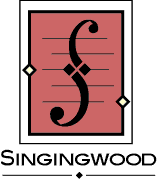What’s the difference between
a jam session and a rehearsal?
A typical jam session
People at jam sessions usually just want to play a piece of music and see what happens. It goes like this. Someone suggests a song and starts it. Everyone clammors onboard. It goes well, propelled by the winds of wimsy... or it limps and stumbles along. If the latter, hopefully it gets better near the end. But when it’s over, that’s it.
Rarely does a tune garner any further attention. Naturally some fun was found, and perhaps insights were gained. Whatever the case, it was what it was ... so now, on to the next piece. However, maybe the song gets played again next time.
At casual jams, generally there's not much leadership or direction, other than picking songs and dealing with trouble that may occur when getting them started. It's like shooting hoops or playing basketball without a coach.
It's like gardening with a bunch of strangers. Everybody brings some plants, people start digging holes. The the trees, shrubs and plants go in without a plan. Without a plan the following will probably happen: plants are purchased that won't survive the climatic zone; there's no thought to proper planting placement, preparation or irrigation ... and likely much of the garden will fail. However, under a little expert guidance, the same effort would yeild a beautiful thriving garden.
A rehearsal
In contrast, rehearsing musicians share a common goal—to work on a piece and take it to higher level. At rehearsals, musicians attempt to refine their renditions of tunes and songs.
Initially the process may unfold much like a jam. Someone starts the song, a general idea is established, and perhaps there's some thrashing about. But then, if the group decides to pursue the piece, they'll settle in and practice iy many times over, focusing on trouble spots, refining the overall groove, attenuating the volume balance of instruments and voice, attending to every detail in the overall sound. Frequently they'll throw a flag, stop the play, and discuss a various points. Then they rev it up again.
Rehearsing musicians give special attention to issues of arrangement:
- tempo and steady timing
- straight time vs. swing time
- choice of chords (surpisingly, there's often considerable leeway here)
- vocal harmonies (aligning vocal timing, chosing the more interesting though less obvious note, matching vowel sounds ...)
- working out kickoffs, endings, turnarounds
- sculpting the entry of the various instruments
- practicing backup and instrumental solos
- ... and often they leave space for improvisation in backup and soloing.
- large matters such as dynamics and key changes
Serious musicians usually record their rehearsals, so they can practice on their parts so they can be better prepared at the next rehearsal.
This level of active refinement is usually unexpected and unwelcome at jams. Often no one is the boss, so if someone speaks up to suggest improving the song ... you don't know what the reaction will be, but usually there's simply the desire to get on with the jam, and maybe try the song you're prepared.
Led jams (seeded jams)
Some jams are seeded. They actually have one or more respected leaders, possibly paid for their skills. Still the main leadership is focused around getting the song started and getting through it. The leader may govern the choice of material, tempo, staring tunes, and helps at including people. It's rare in these circles that much gets truly rehearsed.
Horizon rehearsal and performance groups
These are not like a typical jam, where you play the song once and then decide what to try next.
In our Horizon rehearsals we work on two or three songs a night, in small groups of usually three to seven. That’s about roughly 20 to 40 minutes each. The assistants may halt the action at any time to make suggestions, offer specifics on how to approach or improve your part.
With groups this small it's easy to form a circle small enough that people can really hear each other. In larger jams of ten or more, out of politeness, people usually form a single circle. But it really works better to have concentric circles, so everyone is close, with the more solid musicians close to each other at the center.
Read more about the Horizon Workshops ...
